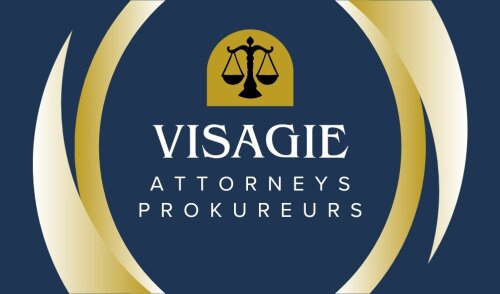Best Landlord & Tenant Lawyers in Rustenburg
Share your needs with us, get contacted by law firms.
Free. Takes 2 min.
Free Guide to Hiring a Real Estate Lawyer
List of the best lawyers in Rustenburg, South Africa
South Africa Landlord & Tenant Legal Questions answered by Lawyers
Browse our 3 legal questions about Landlord & Tenant in South Africa and read the lawyer answers, or ask your own questions for free.
- Can we evict tenants of our property if it is sold?
- May we evict the tenants of our property if it is sold. We have given them notice re this. They have not been paying rent nor deposit. We were very close of losing the house with the bank due to the tenants non payment
-
Lawyer answer by Recososa Law Firm
Hello:Under Philippine law, the rights of both the property owner and the tenants are governed mainly by the Civil Code and the Rent Control Act (if applicable depending on the rental amount). Since you mentioned that the tenants are not...
Read full answer - Eviction appeal
- Good day I had a tenant legally evicted and tool immediate occupation of my property she then went in later that day to her lawyers and got a re reentry court order, failing to disclose that I was already in the property. She and her boyfriend have broken in to... Read more →
-
Lawyer answer by SJ Law Experts
SJ Law Experts, IslamabadThank youSJ Law Experts, Islamabad [Advocates, Legal Advisors & Immigration Lawyers]
Read full answer - Is there a reason that my landlord is refusing to provide proof of putting my security deposit into an interest bearing account?
- The landlord at my former place of residence agreed to pay R8000 of my R11000 deposit after cleaning was done to the property. She provided a R2000 quotation fee but hasn't given me any other receipts to prove how the money was used. Despite that, I believe that cleaning was... Read more →
-
Lawyer answer by NARAG LAW OFFICE
That is not required by law. It is not even in the contract.
Read full answer
About Landlord & Tenant Law in Rustenburg, South Africa
Landlord and tenant law in Rustenburg, part of the North West province of South Africa, governs the rental agreements and disputes between landlords and tenants. The legal framework is designed to protect the rights of both parties, ensuring fair practice and resolution of conflicts. The law covers a range of topics including lease agreements, rental payments, maintenance obligations, and the eviction process. The Rental Housing Act is a primary legislative document that guides these relationships, along with common law principles and the Constitution of South Africa.
Why You May Need a Lawyer
There are several common situations where legal advice in landlord and tenant matters might be necessary:
- If a tenant believes their rights have been violated, such as in cases of illegal eviction or unfair rental practices.
- When drafting a rental agreement to ensure compliance with local laws and to protect one’s interests.
- If a landlord faces issues with tenants, such as non-payment of rent or property damage.
- During disputes over lease terms, property maintenance, or reimbursement claims.
- If eviction processes are necessary, ensuring they are carried out legally and ethically.
- In situations involving discrimination or disputes related to property rights.
Local Laws Overview
In Rustenburg, like the rest of South Africa, landlord and tenant relations are primarily governed by the Rental Housing Act. Key aspects include:
- Lease Agreements: These must comply with the legal requirements and clearly stipulate the rights and obligations of both parties.
- Rental Payments: Regulations govern how and when rent is paid, rental increases, and the handling of deposits.
- Maintenance: Both landlords and tenants have specific maintenance responsibilities that must be adhered to.
- Evictions: Legal procedures must be followed for evictions, ensuring they are not carried out arbitrarily or without due process.
- Dispute Resolution: The law provides mechanisms for resolving disputes, including recourse through the Rental Housing Tribunal.
Frequently Asked Questions
What are the legal requirements for a lease agreement?
Lease agreements should ideally be in writing and must include essential terms such as the rental amount, lease duration, and obligations of both parties.
Can a landlord increase the rent at any time?
No, rental increases must comply with the terms of the lease agreement and should be in line with local market rates and conditions set out in the Rental Housing Act.
How is the security deposit handled?
The security deposit must be held in an interest-bearing account, with interest accruing to the tenant. It may be used by the landlord to cover damages or unpaid rent at the end of the lease.
What should a tenant do if the landlord is not maintaining the property?
Tenants should formally notify the landlord of any maintenance issues. If unresolved, they can escalate the matter to the Rental Housing Tribunal.
Can a landlord evict a tenant without notice?
No, evictions without due process and notice are illegal. Legal eviction requires a court order following proper legal procedures.
What can I do if I've been unfairly evicted?
Tenants who believe they have been unfairly evicted should seek legal assistance immediately and may file a complaint with the Rental Housing Tribunal.
Who is responsible for paying for repairs?
Typically, landlords are responsible for major repairs and structural maintenance, while tenants must ensure the property is kept in a good, habitable condition and handle minor maintenance.
When is a tenant entitled to a refund of their deposit?
The deposit must be refunded within seven days of lease termination, subtracting any legally justified amounts for damages or unpaid rent.
What rights do tenants have regarding lease termination?
Tenants can terminate the lease under specific conditions outlined in the agreement, though early termination might involve penalty fees unless due to a breach by the landlord.
How can disputes be resolved outside of court?
Many disputes can be resolved through mediation, direct negotiation between parties, or by approaching the Rental Housing Tribunal for assistance.
Additional Resources
Consider reaching out to the following resources for assistance:
- Rental Housing Tribunal: Offers dispute resolution services and guidance on rights and obligations.
- Legal Aid South Africa: Provides legal assistance for those who cannot afford private lawyers.
- South African Human Rights Commission: Offers support and information on discrimination or human rights violations.
- Local Law Societies: Can recommend attorneys specializing in landlord and tenant law.
Next Steps
If you require legal assistance in landlord and tenant matters, consider the following course of action:
- Document all relevant communication and agreements related to your issue.
- Seek initial free consultation from legal aid organizations or local law societies.
- For серьезरामmc legal disputes, hire an attorney who specializes in landlord and tenant law to represent your interests.
- Familiarize yourself with the Rental Housing Act to understand your rights and obligations better.
Lawzana helps you find the best lawyers and law firms in Rustenburg through a curated and pre-screened list of qualified legal professionals. Our platform offers rankings and detailed profiles of attorneys and law firms, allowing you to compare based on practice areas, including Landlord & Tenant, experience, and client feedback.
Each profile includes a description of the firm's areas of practice, client reviews, team members and partners, year of establishment, spoken languages, office locations, contact information, social media presence, and any published articles or resources. Most firms on our platform speak English and are experienced in both local and international legal matters.
Get a quote from top-rated law firms in Rustenburg, South Africa — quickly, securely, and without unnecessary hassle.
Disclaimer:
The information provided on this page is for general informational purposes only and does not constitute legal advice. While we strive to ensure the accuracy and relevance of the content, legal information may change over time, and interpretations of the law can vary. You should always consult with a qualified legal professional for advice specific to your situation.
We disclaim all liability for actions taken or not taken based on the content of this page. If you believe any information is incorrect or outdated, please contact us, and we will review and update it where appropriate.










